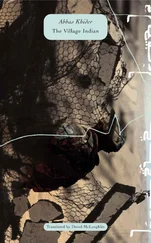József Eötvös - The Village Notary - A Romance of Hungarian Life
Здесь есть возможность читать онлайн «József Eötvös - The Village Notary - A Romance of Hungarian Life» — ознакомительный отрывок электронной книги совершенно бесплатно, а после прочтения отрывка купить полную версию. В некоторых случаях можно слушать аудио, скачать через торрент в формате fb2 и присутствует краткое содержание. Жанр: foreign_antique, foreign_prose, на английском языке. Описание произведения, (предисловие) а так же отзывы посетителей доступны на портале библиотеки ЛибКат.
- Название:The Village Notary: A Romance of Hungarian Life
- Автор:
- Жанр:
- Год:неизвестен
- ISBN:нет данных
- Рейтинг книги:3 / 5. Голосов: 1
-
Избранное:Добавить в избранное
- Отзывы:
-
Ваша оценка:
- 60
- 1
- 2
- 3
- 4
- 5
The Village Notary: A Romance of Hungarian Life: краткое содержание, описание и аннотация
Предлагаем к чтению аннотацию, описание, краткое содержание или предисловие (зависит от того, что написал сам автор книги «The Village Notary: A Romance of Hungarian Life»). Если вы не нашли необходимую информацию о книге — напишите в комментариях, мы постараемся отыскать её.
The Village Notary: A Romance of Hungarian Life — читать онлайн ознакомительный отрывок
Ниже представлен текст книги, разбитый по страницам. Система сохранения места последней прочитанной страницы, позволяет с удобством читать онлайн бесплатно книгу «The Village Notary: A Romance of Hungarian Life», без необходимости каждый раз заново искать на чём Вы остановились. Поставьте закладку, и сможете в любой момент перейти на страницу, на которой закончили чтение.
Интервал:
Закладка:
"You are quite right about the inequality," retorted Tengelyi, "but where in this world do you see a fair fight? The cotton-lord and the factory-workman – the planter and the negro – they are all unequally matched. Believe me, friend, hare-hunting is not a very cruel sport, if compared to some which I could name."
Vandory sighed, and though, as an optimist, fully convinced of Tengelyi's being in the wrong, he resolved to reserve his reply; for Akosh Rety and his party, seeing the two friends on the hill, advanced from the plain and put a stop to the conversation.
Of the company which now assembled round the notary and the old clergyman, there can be no doubt that my lady-readers would be most struck with Akosh Rety and Kalman Kishlaki. They were very handsome; indeed it was a common saying in the county of Takshony, that handsomer young men could not be found in any six counties of Hungary. They showed to great advantage after the hunt, with their flushed faces, and their curly hair escaping disorderly from beneath their small round hats. Their short blue shooting-coats, too, gave them an appearance of great smartness, and – but I am conscious of my duty as a Magyar author, and I know that the Justice ought to have the precedence in his own district. I therefore beg leave to introduce to my honoured readers the justice and his clerk, Mr. Akosh Rety's companions in the hunt.
Learned men maintain that our country is inhabited by a race of classic, viz., of Scythian, origin. At times we may forget this fact; for, even among the men whose names most unmistakeably proclaim our Eastern source, there are many whom any one but a philologist would class with quite a different race of people. It is notorious that the current of the Rhine loses itself in mud and sand. Even so are the descendants of families who were glorious in their generation, intent upon magnifying their fathers by eschewing to eclipse the brilliancy of ancestral fame. There are men of whose high descent we are only reminded by the impossibility to conceive what they could live on, unless it were on the inheritance of their fathers.
Far different is Paul Skinner, the justice of the district. Every doubt about the authenticity of our national origin must vanish on seeing him on his dun horse and lighting his pipe; for Paul Skinner is a striking evidence of the fact that the Scythian blood of our ancestors still flourishes in the land.
For the benefit of those unacquainted with the administration of Hungary, I ought to remark that the office of a district justice is unquestionably the most troublesome and laborious in the world. A district justice is a firm pillar of the state; he upholds public order, – he protects both rich and poor, – he is the judge and the father of his neighbourhood; without him there is no justice – or, at the least, no judicature. All complaints of the people pass through his hands; all decrees of the powers that be are promulgated and administered by him. The district justice regulates the rivers, makes roads, and constructs bridges. He is the representative of the poor, the inspector of the schools; he is lord chief forester whenever a wolf happens to make its appearance; he is "protomedicus" in the case of an epidemic; he is justice of the peace, the king's advocate in criminal cases, commissioner of the police, of war, of hospitals; in short, he is all in all, – the man in whom we live, move, and have our being.
If, among the six hundred men holding that office in our country, there is but one who neglects his duty, the consequence is that thousands are made to suffer: a want of impartiality in one of them kills justice for many miles round; if one of them is ignorant, Parliament legislates in vain for the poor. And whoever will condescend to compare the reward with the labour, and consider that, besides a salary of from 100 to 150 florins per annum, a district justice must expect, after three years' impartial administration of his office, to lose it by the instrumentality of some powerful enemy, – whoever, I say, considers all this, must confess that there are in this country either six hundred living saints, or as many hundred thousand suffering citizens.
From what I have stated it is easy to see that there are two drawbacks to the office of a district justice, viz. too much work and too little pay. There are indeed some justices who endeavour to doctor their dignity, by neglecting part of it, viz. the work, – and who of the other part, – that is to say, of the pay, – take more than the law obliges them to take. But the more enlightened, scorning such petty improvements, advocate the principle of out-and-out reform in all that regards the faulty composition of their office. Most wisely do they accept of what the office yields with such profusion, (viz. work,) only when it promises to yield what they lack, viz. pay. Most wisely, I say; for how else could Spectabilis Paul Skinner rear his four sons to be pillars of the state? and how else could he possibly make the respectable figure which suited his office, and on the strength of which, whenever he, as chief dignitary, perambulates the happy meads of the district of Tissaret, he imparts a salutary quaking to the said happy meads? – of course I mean to their humblest part, – to the abandoned population which presumes to solicit a share of the most precious treasure of civil liberty, viz. justice, and for nothing too.
But even those who know nothing of all this cannot fail to feel, in Paul Skinner's presence, that sacred awe which is so necessary for the maintenance of order. His external appearance is calculated to frighten both the innocent and the guilty. Fancy a bony man, bilious, and wrinkled like a baked apple; add to these graces a black beard, a pair of large mustaches, green piercing eyes, which, it appears, are made to wound rather than to see, and the short pipe which sticks to him like any other member of his body, – fancy a tone of voice so shrill, so cutting, that it alone can frighten the whole population of a village, and you will confess that every body in the district (with the sole exception of the rogues) must tremble on beholding Paul Skinner. But never did Justice assume a more terrible shape than when she appeared in the guise of the said Paul Skinner travelling his circuit. Then might be seen the four horses with their postilion, furnishing a living demonstration of the rapid progress of Hungarian justice; behind the postilion, the county hussar with his feathered calpac; and – "post equitem sedet atra cura," – behind the hussar a bundle of sticks, reminding the lovers of antiquity of the old Roman lictors (thus named from their licking propensities); and behind the sticks the judge, always smoking and sometimes cursing, his feet stuck in a huge but empty sack, which, "quia natura horret vacuum," travels with its master that it may be filled. Even the boldest were frightened out of their wits by this gradation of terrors.
It is impossible to conceive the idea of a district justice without a clerk. Nature produces all creatures in pairs; and the Hungarian Constitution, proceeding from natural principles, and acting up to them, produces Justice only by the joint agency of two beings, viz. judge and clerk. After introducing my readers to Mr. Skinner, it is but just that I should recommend Mr. Kenihazy to their notice. That gentleman is at this moment engaged in an interesting conversation with one of the dogs, and in the joy of his heart – for that lucky dog caught the hare! – he has just uttered certain quaint imprecations, which a shepherd was fined at the last sessions for using. Andreas Kenihazy, or Bandi Batshi, as his most intimate friends are in the habit of calling him, is his master's right hand. He is not such a right hand as may sometimes be found among other assistants, who, according to the words of Scripture, unconscious of the doings of the left hand, that is to say, of the justice, do the very reverse of what he did. No! Bandi Batshi is a loyal right hand, co-operating to the welfare of the whole of which it is part. As a good Christian, Kenihazy practised the lesson about the smiting of cheeks. Whenever his superior was insulted (that is, when he was bribed, which is the greatest insult you can offer a judge), Kenihazy would hold out his hand also, nor would he be pacified unless he was exposed to a like indignity. Nevertheless, Kenihazy was not easy to be bribed. To insult him was a difficult and dangerous business; and those who had once witnessed the outpourings of disgust with which the honest man resented so gross an outrage, trembled when they offered their gift to that righteous judge, who, for all that, remained mindful of his oath, and who, to make matters even, showed himself most favourable to those who had tried his temper, unless, indeed, the other party gave still greater offence.
Читать дальшеИнтервал:
Закладка:
Похожие книги на «The Village Notary: A Romance of Hungarian Life»
Представляем Вашему вниманию похожие книги на «The Village Notary: A Romance of Hungarian Life» списком для выбора. Мы отобрали схожую по названию и смыслу литературу в надежде предоставить читателям больше вариантов отыскать новые, интересные, ещё непрочитанные произведения.
Обсуждение, отзывы о книге «The Village Notary: A Romance of Hungarian Life» и просто собственные мнения читателей. Оставьте ваши комментарии, напишите, что Вы думаете о произведении, его смысле или главных героях. Укажите что конкретно понравилось, а что нет, и почему Вы так считаете.












